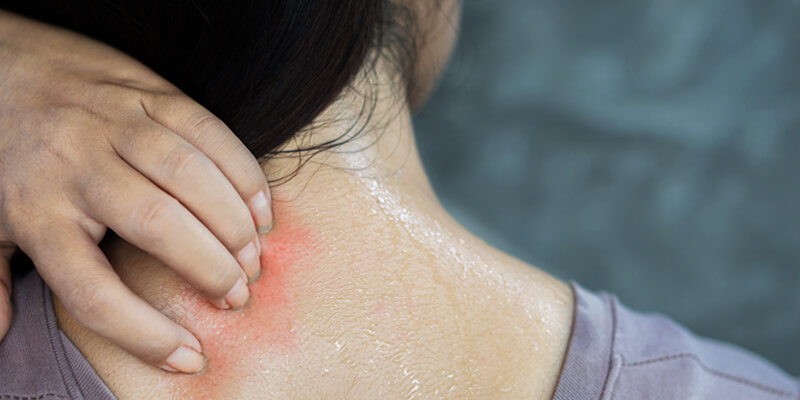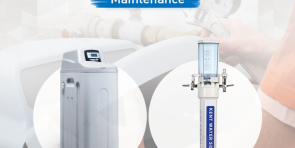Skin Rashes? It’s Time To Check Your Home’s Water Quality
Do you experience skin rashes and dryness of skin every time you get out of the shower? Do you believe these rashes occur because of changing weather, increasing air pollution, or the skin products you use? While these might be some of the causes of skin rashes and skin dryness, there is another major reason for skin-related issues that most of us are uninformed about – Water.
The water quality at your home can be the primary reason for your skin issues. If you do, in fact, experience rashes post-shower, it is all the more a reason to check the quality of water in your home. The hardness of water can cause many skin-related issues such as breakout, acne, skin irritation, and skin rashes, but not everyone is aware of these ill effects. Hence, most people keep changing their bath and body products to see better results.
What is Hard Water?
When minerals like calcium and magnesium are present in excess in water, it makes water hard. The excess of minerals is caused when water flows through deposits of calcium and magnesium sulfates, carbonates, and bicarbonates. Hard water can lead to various problems including plumbing issues, scaling on bathroom fittings, and clogging of pipes besides skin and hair issues. Read more about hard water.
How does Hard Water Affect your Skin?
As mentioned earlier, hard water can cause many problems including skin-related issues. Your skin problems such as dryness, rashes, dullness, breakouts, and even aggravated eczema could be a result of regularly using hard water to take a bath and clean your face.
Hard water makes it tough to wash away the soap from your body and face. The soap residue takes away moisture from your skin, resulting in dryness and rashes. Hard water also clogs pores on your skin, which is a leading cause of acne.
How to Get Rid of Hard Water?
To see positive changes in your skin, you need to first ensure that you get rid of hard water in your home. The best way to do so is by turning hard water into soft water. The first step towards this is getting the water supply in your home tested for its quality and the level of hardness it has. The next step is to install a good water softener in your home, depending upon your needs. Water softeners remove excessive minerals from your water supply, turning hard water into soft water, which eventually saves your skin from damage by preserving moisture.
Which Water Softener to Choose?
When hard water is creating skin problems, the best solution is to get a bathroom water softener or even better a whole house water softener. KENT Bathroom Water Softener is specifically designed to provide soft water in the bathroom, while KENT Autosoft is a fully automatic whole-house water softener that provides soft water in the entire house. Depending upon the level of hardness in your water, you can choose the right water softener for your home and minimize your skin problems. KENT also provides a free home visit to check the actual level of hardness in your water supply and to help you select the right water softener for your home. Book a free demo today!
Frequently Asked Questions
1. Which water is good for skin?
When it comes to skincare, the quality of water used for cleansing and bathing can matter. Hard water, which contains a high mineral content, can sometimes be harsh on the skin and hair, potentially causing dryness and irritation. Softened or filtered water is often gentler and can be better for the skin. Additionally, using lukewarm water for cleansing can help avoid stripping natural oils from the skin, contributing to a healthier complexion.
2. What is the main cause of skin irritation?
Skin irritation can be attributed to various factors, with some of the primary causes being:
1. Allergens: Exposure to allergens like pollen, pet dander, or certain foods can trigger skin allergies.
2. Irritants: Harsh chemicals in skincare products, soaps, or detergents can strip the skin’s natural oils, causing irritation.
3. Weather: Extreme temperatures, humidity levels, and UV radiation can harm the skin.
4. Friction: Rubbing or chafing against clothing or fabrics can lead to irritation, especially in sensitive areas.
5. Medical Conditions: Skin conditions like eczema, psoriasis, or contact dermatitis can cause persistent irritation.
3. Can hard water cause skin irritation?
Yes, hard water can lead to skin irritation. It contains high mineral content, primarily calcium and magnesium ions, which can form soap scum, making it harder to rinse off soaps and detergents. This can leave a residue on the skin, clogging pores and potentially leading to dryness and irritation. Individuals with sensitive skin may experience worsened symptoms like itching and redness when exposed to hard water regularly.





